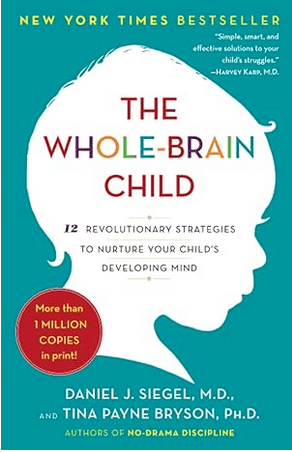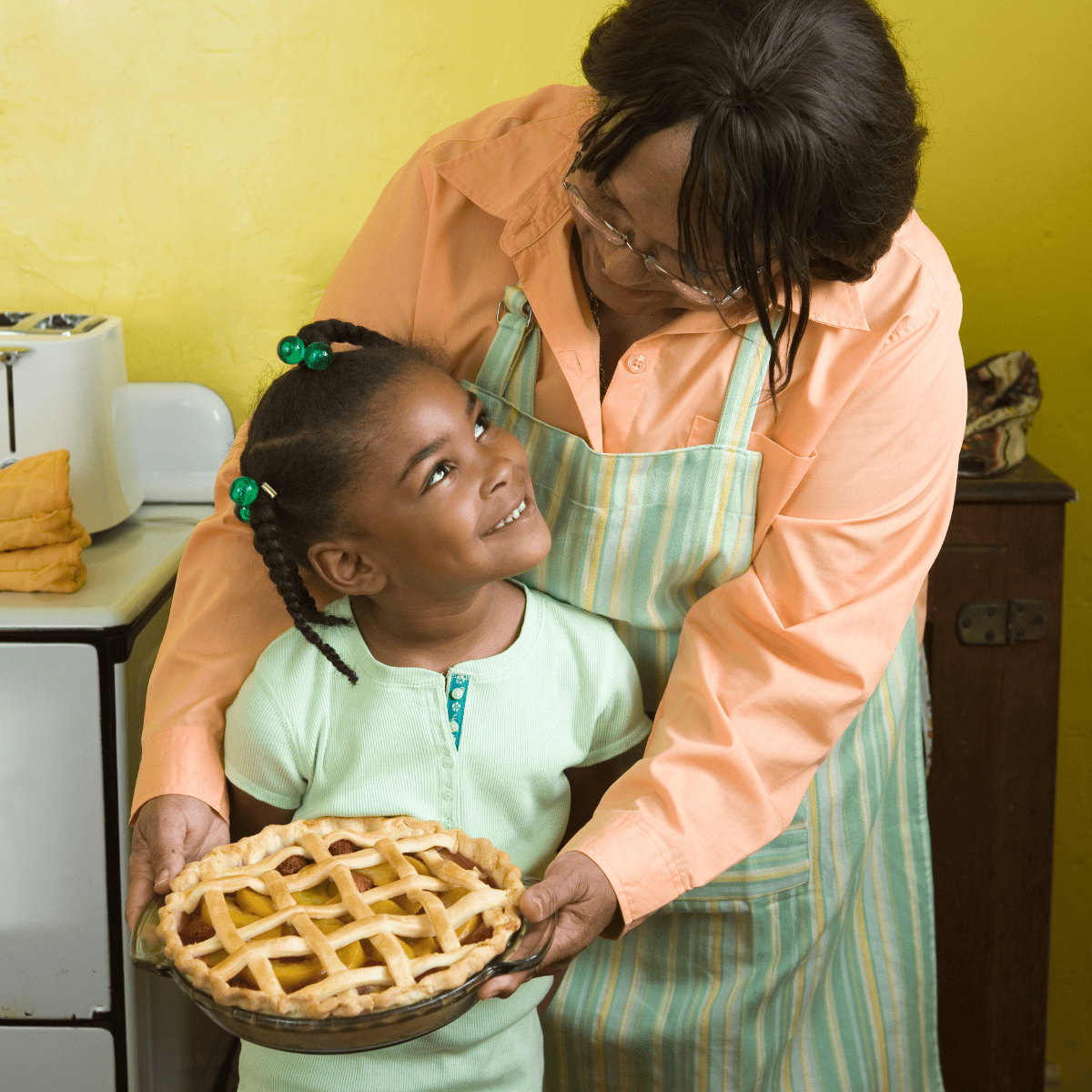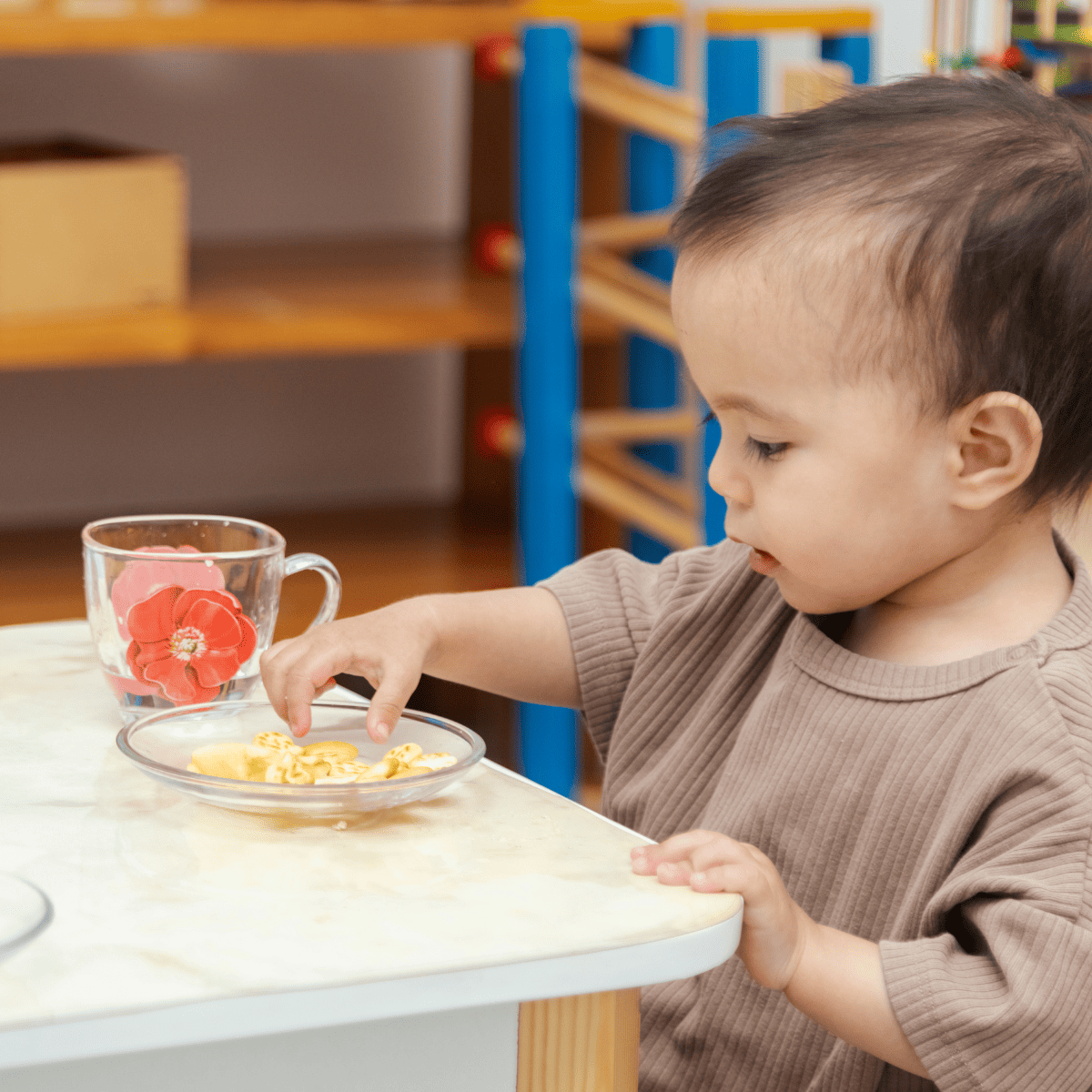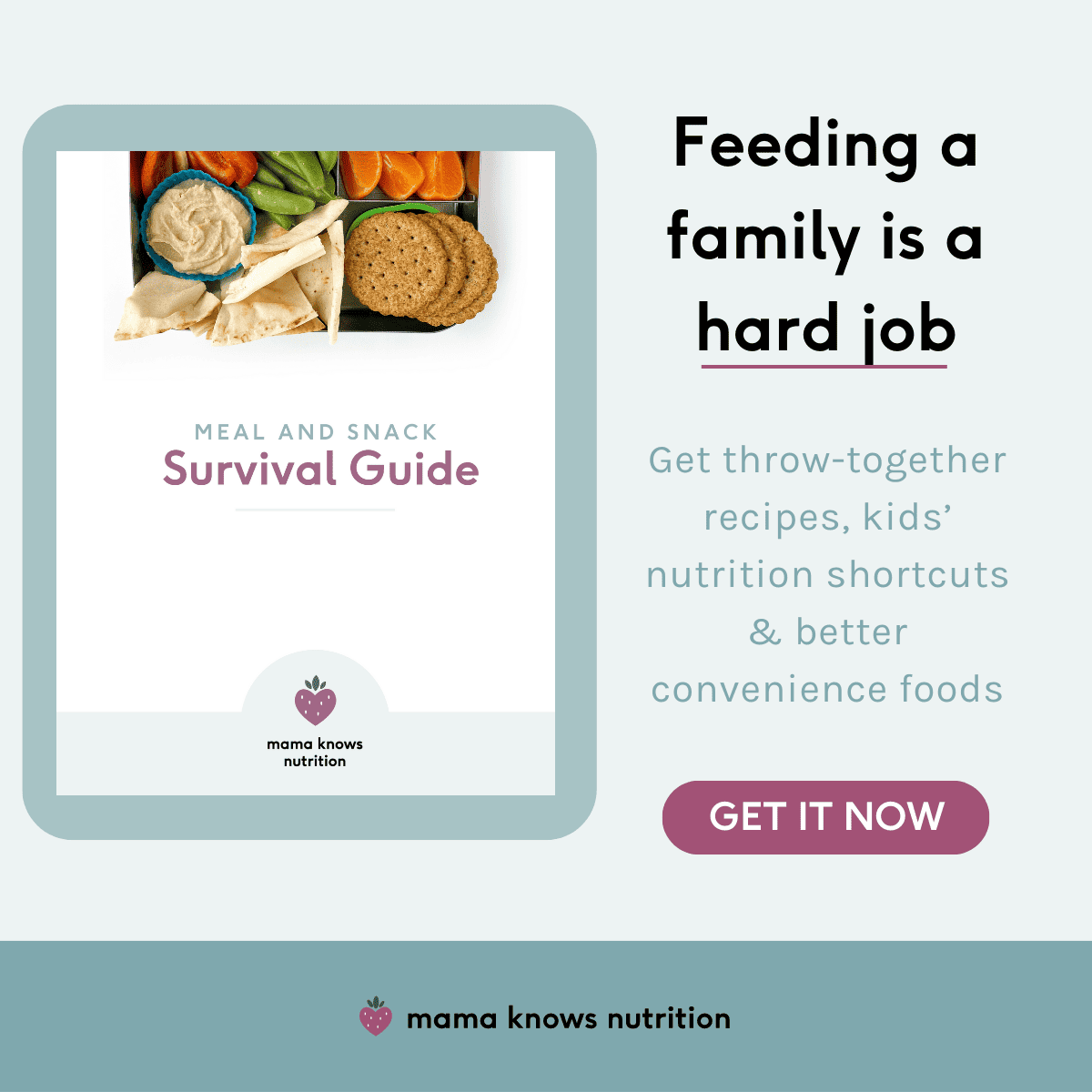
Menu

Ah, boundaries. Everyone’s favorite topic, right?! You’ve probably had to navigate creating boundaries for and around your kids since they got here. From newborn visitors to babysitter etiquette to bedtime routines, there’s always a new topic to tackle. I’m here to help you with a topic that comes up all the time in the feeding and nutrition world! And it has to do with creating boundaries with caregivers around feeding your kids.
None of us will be with our kids every time they eat for the rest of their childhood. In fact, as they get older and start to go to daycare, school, friends’ houses, etc, they’ll be out of our sight more and more for meals and snacks. This shift can be tricky for a lot of us! It’s hard to navigate the emotional territory of releasing control and letting other people care for our most prized possessions! You might find it infuriating when caregivers (family/friends and otherwise) don’t do things how you want or ask them to, and when it comes to feeding our kids, that can be especially tough.
In this post, I want to give you some insight, reassurance, and helpful strategies for figuring out these situations. We want everyone involved to feel informed and respected. And most of all, we want our kids to stay happy, healthy, and well-nourished!
For many people, food is love. Food is connection. Food is a cultural cornerstone that many of us have had various (positive and negative) formative experiences around. So it makes sense that we all come to the table- literally and figuratively- with different approaches to how we eat, how we feed our kids, and the customs and habits we create around food.
There’s nowhere this becomes more apparent than between generations.
Yep, I’m talking about grandparents. For many grandparents, food is a big piece of connection. It may be the way they were offered love. (And this is not a bad thing- food is meant to be enjoyed and connected over!) So in turn, it may be one of the ways they are accustomed to offering love to their grandchildren. We’ve all seen the playful images of grandmothers refilling kids’ plates before they’re finished, urging them, “have some more!” It usually comes from a good place. They want to nourish and care for someone by providing them delicious food!

But sometimes their ways may butt up against your ways. And navigating the conversations and potential hurt feelings in the family can be tricky.
In this post, we’ll cover more than just the dynamic with grandparents. We’ll talk about babysitters/nannies, childcare workers, etc so you know what needs to be addressed and when. And you’ll learn productive ways to get everyone on the same page and maintain the overall perspective: the wellbeing of our kids!
I would say this largely depends on frequency and the severity of the situation.
Let’s talk about frequency, assuming that the main issues revolve around things like:
If your child is mostly in your care except for rare occasions:
Say it’s every few weeks or less that they go their grandparents’ house or have a babysitter. Usually those instances won’t become too problematic- even if they’re eating cookies all day. Yes, you’re hearing me give permission for some days to just be indulgent! I bet lots of us have fond memories of fresh baked cookies or pies at grandma’s house and eating to our heart’s content. That is totally okay.
If it’s weekly or more:
Say grandma babysits every week. Or you have a regular after-school caregiver, or nanny. Then I’d be more inclined to address any issues that crop up. Because those caregivers are more likely becoming a formative force creating habits around food.
Any time you’re noticing that your child’s typical eating habits are being disrupted or there is a significant increase in picky eating behaviors, then it’s probably a good time to evaluate and try to create a little more continuity across different situations.

Sometimes it’s very infrequent – like just on holidays. But if it’s an issue that impacts the health or wellbeing of your child, or is very upsetting/disturbing to you? Then you absolutely should feel empowered to address it.
Some examples that might feel like a hard no:
I usually find the easiest way to address these is to share a list with the caregiver. Sometimes they genuinely don’t know they are doing something wrong. So provide them with a list of safety reminders. Type it up so you have it on hand for anyone watching your child! I did this when my kids were little and it was a great tool to have on hand.
I hear this VERY commonly. Other family members can have a hard time keeping their negative comments to themselves. But those comments can be damaging and stick with your child for a long time. It’s up to you whether you address the person who made the comment. But either way, it’s smart to follow up with your child afterward.
I LOVE the book The Whole Brain Child for handling these kinds of things with your kids. It talks about how we often try to talk kids out of their feelings or avoid painful issues. When you have a story-telling conversation about a difficult or upsetting event it helps them work through it. It’s one of my all-time favorite books for all parents to read!

Let’s chat specifically about common issues with grandparents.

I’m tackling this one first because it seems to be the most complicated. Involved and helpful grandparents are SUCH a huge gift in the child-rearing years, there’s no doubt about it. But it’s also probably the toughest relationship to navigate disagreements or differences of opinions. That’s because, well, they’ve raised kids, too! (I’m sure they have mentioned that a time or two!)
It’s true that they did the very best job they could raising successful humans (in a different generation). It’s also true that we have greater access to information and years of scientific research available to us that they didn’t have. And this greater access to nutritional information is informing our choices as it relates to feeding our kids. Both can be true.
I like to look at this as a ‘both/and’ situation. We can embrace the way that they do things. (If grandma wants to have the kids help her make a peach pie on summer day- YES, please!) AND ask that they honor our preferences for daily routines (for example, serving sweets just once per day with dinner).
There’s no need to undermine the way they did/do things, but it’s also okay and healthy to express what’s important to you, too! Finding a happy medium and creating boundaries on the things that are important to you are vital to keeping these relationships healthy and functioning.
That also means you have to decide what your non-negotiables are. Maybe you’re willing to let them have different snacks at their grandparents’ house than they do at your house. But you’d really like to keep soda off the table. That’s totally reasonable! You can be flexible but still have boundaries.
For me personally, it was a discussion about keeping the TV off during mealtimes.
Mutual respect is at the heart of this one. And that means agreeing we can have different thoughts on something and still find a way to work together. Ultimately anyone you’re leaving your kids with should be able to honor that.
Try to view this scenario as an opportunity to bridge the gap and find ways to merge the love and connection that grandparents are so good at offering with the structure and habits you’re trying to create for your family.
And like I said, some indulgence is okay! Certain foods are just good for the soul.
If you want a deeper dive into navigating food boundaries with grandparents, check out this podcast I recorded on the topic!
Remember, if a situation feels unhealthy or toxic for your family, you do not have to just live with it. And I highly recommend reaching out to a therapist for support.
School/daycare is a little bit of a different animal. Hopefully you know and love your child’s teachers! But you likely don’t have the same relationship with them as you do with your child’s grandparents. So you may not have quite the same level of open communication or trust. Hopefully you are still able to communicate with them honestly and regularly.
It is totally okay and good to express your preferences to daycare and school workers regarding your child. You are not a helicopter parent for doing so! In most cases, you’re paying them to basically partner with you in taking care of and helping raise your child. So you don’t have to settle for the bare minimum. I totally believe there is a way to express what’s important to you without being overbearing, even though moms (and dads) are often made to feel that way when they express particular preferences.

Try to approach this as collaboratively as possible. Get them on the same page with your goals. Tell them your preferences and disclose any and all allergies and intolerances. And if your school provides snacks, it’s ok for you to decide what you’re okay with them serving your child. (As long as you’re willing to provide your own snacks!)
Usually, you can pack meals and snacks yourself so you know what is available to your child at school. But I know some schools don’t allow outside food. That is trickier, but it’s still worth it to communicate about your preferences.
I personally ended up having a conversation with the head of my kids’ preschool last year. The aide in my daughter’s classroom kept telling her to, “eat all her healthy foods before her treat!”
But I purposely sent in more food than she’d typically eat in case she didn’t like everything. I didn’t want her to have to force it all down to have the treat that I packed. I mentioned it to the teacher but it kept happening. So I took it to the director, and she happily addressed it.

This one is somewhat similar to school, as you’re hiring/paying these people to help take care of your kids. It’s reasonable to expect that they’d do that in a way that aligns with your goals for your family.
I encourage you to be clear up front about the things that are important to you regarding food. For example, if your family adheres to a vegetarian diet, then you’d want all your caregivers to know that a post-school McDonalds run is not in the cards.
If a caregiver is preparing food, make sure they have lists of what you approve. Feel free to give schedules and guidelines within that, too. While there’s no need to be militant about things, it is helpful for an after-school babysitter to know if you want snack time to be around 3:30, for example.
If you’re having a hard time getting on the same page, it might be time to get a little more specific. Say something like, “I noticed that Henry gets constipated when he has too much fruit, would you mind serving him yogurt and crackers as a snack instead?” Framing it like that helps you get on the same team!
The more that you can get down on paper, the better. Having a written schedule and important notes helps everyone!
But maybe you have a setup like a nanny share, or your child goes to another family’s house (not playdates, but childcare). It can become really apparent that families do things differently. I would find the boundary lines that are most important to you and ask the other parent to honor that. It’s okay to be flexible and let certain things slide because we can’t control every setting all the time. But it’s equally okay to ask that another adult help you hold a boundary that is important for your child.
Sometimes it can be triggering when people don’t do (or outright refuse to do) what you want them to do. That makes sense- you care! And you should! Our kids are the most important thing to us and we all want to do right by our kids.
Please don’t hear me say you have to forgo all your boundaries. Rather, what I’m saying is that you just need to decide where they are and then be firm about getting people on board with them.
Ask yourself what your non-negotiables are when it comes to feeding your kid, and then also ask yourself where you can have a little room for gray area or flexibility. Both are important!
You might not know what all your non-negotiables are up front, and that’s NORMAL. For example – I had a babysitter that watched my kids after school while I was working. One day I heard her telling them they needed to clean their plate at snacktime (the kids were 1 and 4). And her tone was pretty harsh. It wasn’t something that I expected would ever come up! But after that, I knew to mention to sitters that the kids didn’t have to finish all their food.
But when we look at just their nutrition, usually it’s okay to loosen the reigns a bit. Your child’s overall diet is WAY more than what happens on a particular day. It’s the whole picture.
I just want you to have the freedom of knowing that occasional indulgences won’t hijack their whole nutritional status. It’s about finding the line of making sure our childrens’ caregivers are aligned with us and also not worrying too much about circumstances that aren’t always under our control.
You’re a great parent who is doing a great job!
If you want to arm yourself with more meal and snack ideas to keep your fridge and pantry stocked (to make things easier for caregivers and for yourself!), check out my Meal and Snack Survival Guide. It’s loaded with meal suggestions, snack products, and more!
There is nothing complicated or time consuming in there. It’s meant to help you get the job done without spending all kinds of time in the kitchen. And it’s picky eater friendly!


I’m a mom of two and a Registered Dietitian Nutritionist. I offer e-guides and e-books (go to my Shop page), workshops, brand partnerships, and nutrition counseling. Check out my blog for nutrition and feeding tips for your little ones.
This post may contain affiliate links. I may earn a commission. As an Amazon Associate I earn from qualifying purchases.
0 Comments